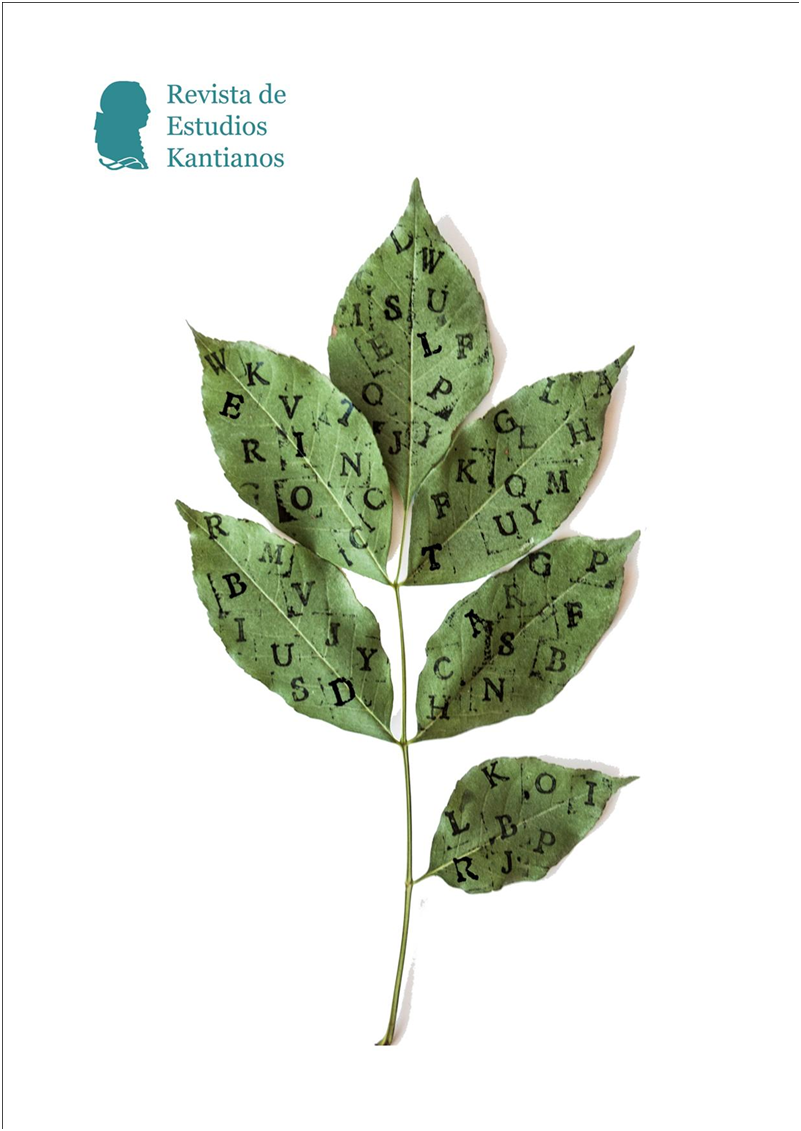Unidad del espacio, mereología y geometría desde la Estética Trascendental
DOI:
https://doi.org/10.7203/REK.3.1.10708 Abstract
Abstract
Este trabajo propone que el espacio, para Kant, en la Crítica de la razón pura, posee una unidad propia que es el fundamento de los conceptos espaciales, tanto empíricos como geométricos; esta unidad es intrínseca y se caracteriza por ser antiatómica. La propuesta se defiende en contra de la lectura de la síntesis, según la cual la unidad del espacio es producto de la actividad combinatoria del entendimiento. En la parte final, se extraen algunas consecuencias importantes de esta concepción del espacio para la teoría kantiana de la geometría, según la cual la sensibilidad humana es fuente del conocimiento geométrico.
 Downloads
Downloads
Download data is not yet available.
Downloads
Published
2018-04-28
How to Cite
Lazos Ochoa, E. (2018). Unidad del espacio, mereología y geometría desde la Estética Trascendental. Revista De Estudios Kantianos, 3(1), 46–68. https://doi.org/10.7203/REK.3.1.10708
Metrics
Views/Downloads
-
Abstract869
-
PDF (Español)533
Issue
Section
Artículos
License
![]()
The authors who publish in this journal agree with the following terms:
- The authors retain their copyright and guarantee to the journal the right to be the first to publish the work and to license it under a Creative Commons Attribution License that allows others to share the work with an acknowledgement of its authorship and the initial publication in this journal.
- Authors may separately establish additional agreements for non-exclusive distribution of the version of the work published in the journal (for example, placing it in an institutional repository or publishing it in a book), with acknowledgement of its initial publication in this journal.
- Authors are allowed and encouraged to disseminate their work electronically (e.g., in institutional repositories or on their own website) before and during the submission process, as this can lead to productive exchanges as well as earlier and greater citation of published work (see The Effect of Open Access).








